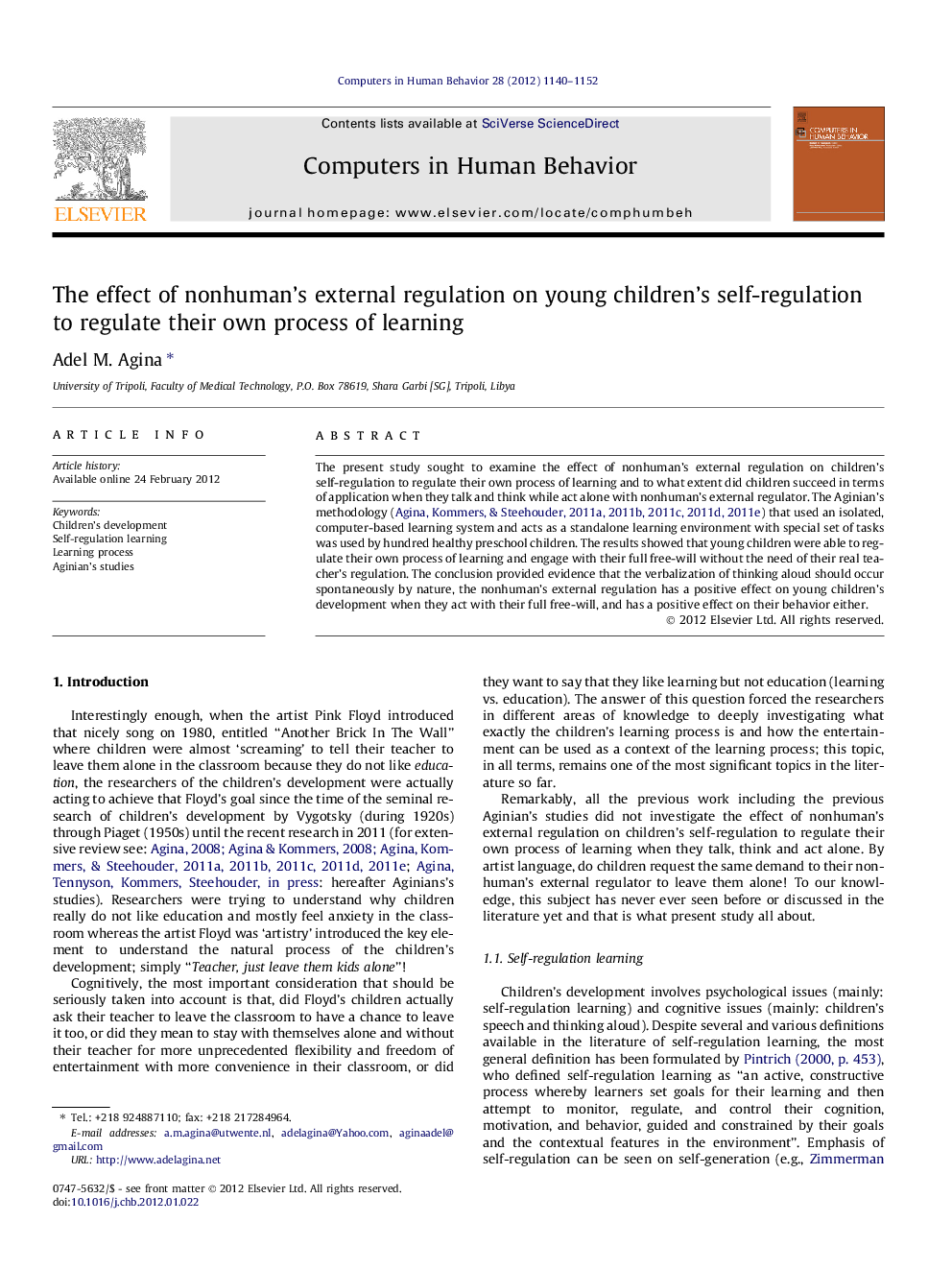| Article ID | Journal | Published Year | Pages | File Type |
|---|---|---|---|---|
| 351374 | Computers in Human Behavior | 2012 | 13 Pages |
The present study sought to examine the effect of nonhuman’s external regulation on children’s self-regulation to regulate their own process of learning and to what extent did children succeed in terms of application when they talk and think while act alone with nonhuman’s external regulator. The Aginian’s methodology (Agina and Kommers, 2011a, Agina and Kommers, 2011b, Agina and Kommers, 2011c, Agina and Kommers, 2011d and Agina and Kommers, 2011e) that used an isolated, computer-based learning system and acts as a standalone learning environment with special set of tasks was used by hundred healthy preschool children. The results showed that young children were able to regulate their own process of learning and engage with their full free-will without the need of their real teacher’s regulation. The conclusion provided evidence that the verbalization of thinking aloud should occur spontaneously by nature, the nonhuman’s external regulation has a positive effect on young children’s development when they act with their full free-will, and has a positive effect on their behavior either.
► Children engage and continue their own process of learning even after short breaks. ► Thinking aloud occurs spontaneously by nature without previous guidance. ► Nonhuman’s regulation has positive effect on children’s development and behavior. ► Gender has no effect on children’s regulation of their own process of learning. ► Research on children’s development should avoid proposing hypotheses.
